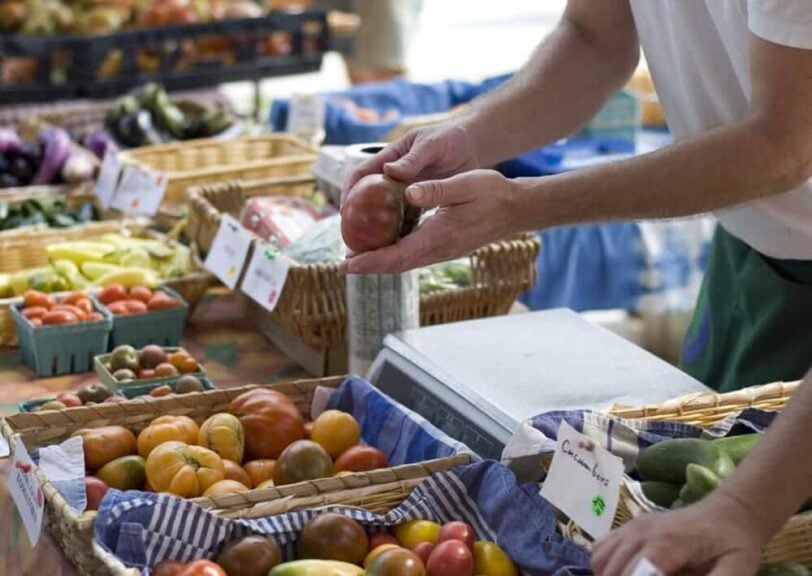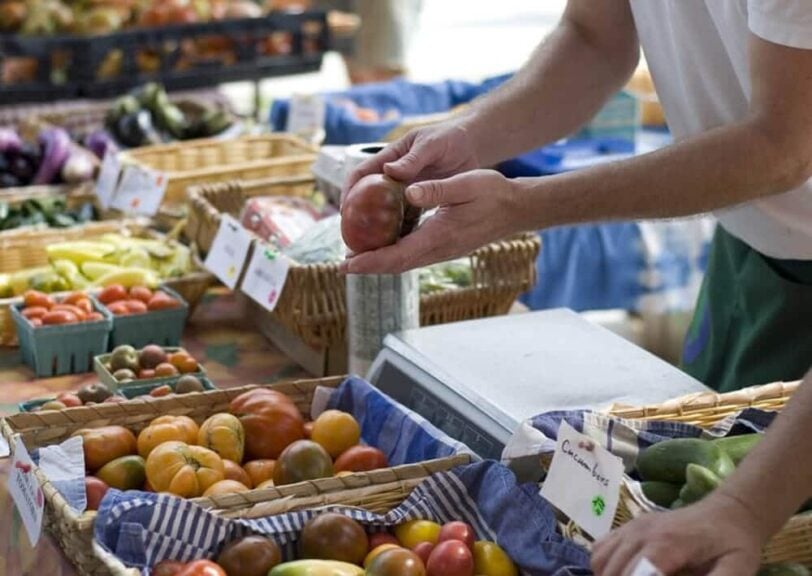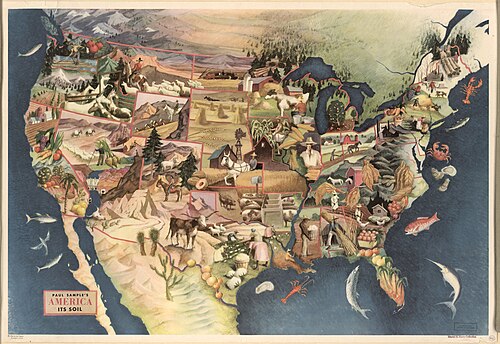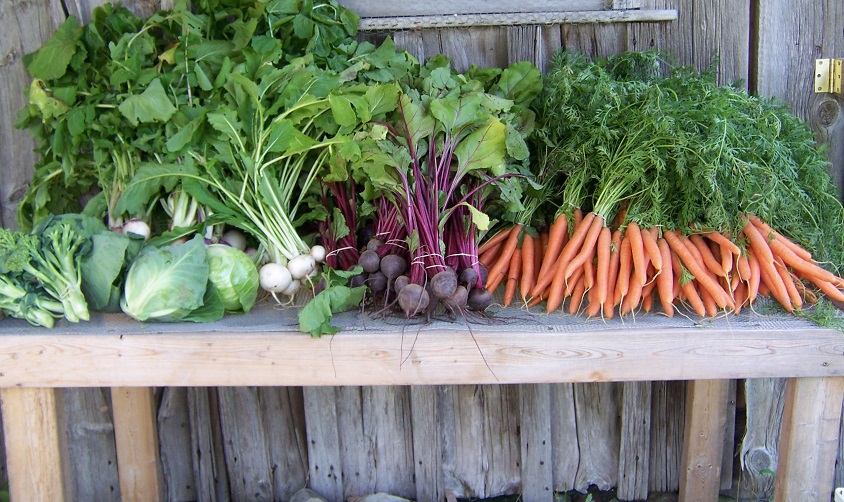
California's Farm-to-Consumer Crossroads: Protecting Our Local Food Future
For those of us who value self-sufficiency, community resilience, and a deep connection to the land, the ability to access fresh, local food is paramount. It’s about knowing where our food comes from, supporting our neighbors, and nourishing our bodies with wholesome ingredients. But a new regulation proposed here in California – the "Farm-to-Consumer Direct Sales Regulation" – threatens to disrupt this vital link between farmers and consumers. It's time we all understood what's at stake and how we can protect our local food future.

Understanding the Proposed Direct Sales Regulation
So, what exactly does this "Farm-to-Consumer Direct Sales Regulation" propose? In essence, it aims to standardize and, many argue, restrict the ways small-scale farmers and homesteaders can sell directly to consumers. While the stated intention is to enhance food safety, the proposed rules could have unintended and devastating consequences for our [California agriculture]. Here are a few key areas of concern:
- Restrictions on Product Sales: The regulation could limit the types of products that can be sold directly. For example, some interpretations suggest stricter rules around selling value-added products like jams, pickles, or even baked goods made with home-raised eggs. This hits homesteaders particularly hard, as these are often essential income streams.
- Increased Inspection Requirements: While food safety is important, the proposed regulation could impose costly and burdensome inspection requirements on [small-scale farming] operations. This includes farms already following best practices and serving their communities safely for years. These inspections can be prohibitively expensive and time-consuming, potentially driving smaller farms out of business.
- Limitations on Direct-to-Consumer Online Sales: In our increasingly digital world, many farmers rely on online platforms and delivery services to reach customers beyond their immediate vicinity. The new regulation could place significant restrictions on these [Farm-to-Consumer] online sales, limiting their market reach and disproportionately affecting those in rural areas.
- Stricter Labeling Laws: The proposed legislation will impose new and often convoluted rules around labelling. It will increase costs for small businesses that might not have the same level of resources.
The Potential Impact on Our Communities
The heart of the issue is the potential impact on local farmers markets, Community Supported Agriculture (CSAs), and individual homesteaders who depend on [direct sales regulation]. To truly understand the implications, it’s crucial to hear from those who will be most affected.
I spoke with Maria Rodriguez, a local farmer who runs a small CSA in Sonoma County. She says, "This regulation feels like a direct attack on our livelihood. We've been providing fresh, organic produce to our community for over a decade. The increased inspection fees and restrictions on what we can sell will make it almost impossible to continue. It's not just about the money; it's about the connection we have with our customers."

Another homesteader, David Chen, who sells eggs and honey at his local farmer's market states, "I am a disabled veteran. My small homestead allows me to stay active, have a purpose, and provide income for my family. If I am no longer able to sell my eggs and honey, I do not know what I will do. The new regulation is overly burdensome on small businesses and will increase the price of local [local food] that I and other vendors sell. I am very concerned."
These aren't isolated cases. Many small farmers and homesteaders in [California] share these concerns. This regulation could lead to:
- Reduced Access to Fresh, Local Food: As farms struggle to comply with the new rules, they may be forced to scale back production or even close down. This would diminish our access to fresh, healthy, locally grown food, impacting our health and well-being.
- Weakened Community Bonds: Farmers markets and CSAs are more than just places to buy food; they’re vital community hubs where we connect with our neighbors, learn about sustainable agriculture, and celebrate our local heritage. Restricting these outlets weakens the bonds that hold our communities together.
- Erosion of Self-Reliance: One of the core tenets of the Better Homes and Harvests community is self-reliance. This regulation undermines that value by making it harder for individuals to provide for themselves and their communities through [homesteading] and small-scale agriculture.
Connecting to Our Core Values
Better Homes and Harvests is built on the principles of self-reliance, community resilience, and a deep connection to the land. This proposed [direct sales regulation] directly challenges those values. It creates unnecessary barriers for those who choose to produce their own food and contribute to their local economies. It prioritizes bureaucratic control over the autonomy and ingenuity of individual farmers and homesteaders.
Taking Action: Protecting Our Local Food Systems
We can't stand by and watch as our local food systems are threatened. Here are some concrete steps you can take to voice your opinion and protect our community:
- Contact Your Elected Officials: Reach out to your California State Assemblymember and Senator. Let them know you oppose the proposed Farm-to-Consumer Direct Sales Regulation and explain how it will negatively impact your community. You can find their contact information on the California State Legislature website.
- Sign the Petition: Several organizations are circulating petitions opposing the regulation. Search online for "[California] Farm-to-Consumer Petition" to find and sign one. Share it with your friends and family.
- Attend Local Town Hall Meetings: Stay informed about upcoming town hall meetings or public forums where you can voice your concerns directly to policymakers. Check your local news and community calendars for announcements.
- Support Organizations Fighting for Small-Scale Agriculture: Donate to or volunteer with organizations like the California Farm Bureau Federation and the Community Alliance with Family Farmers (CAFF), which are actively working to advocate for small farmers and protect our local food systems.
- Spread the Word: Share this blog post and other information about the regulation with your network. The more people who are aware of the issue, the stronger our collective voice will be.

A Call to Action
The future of our local food systems is in our hands. We must act now to protect the farmers, homesteaders, and communities that depend on direct sales. Don't let this regulation stifle our self-reliance, weaken our community bonds, and disconnect us from the land. Contact your elected officials, sign the petition, and support the organizations fighting for [California agriculture]. Let's stand together to ensure a vibrant and sustainable food future for all. Now is the time to make our voices heard and show that we value [local food] and the people who produce it.